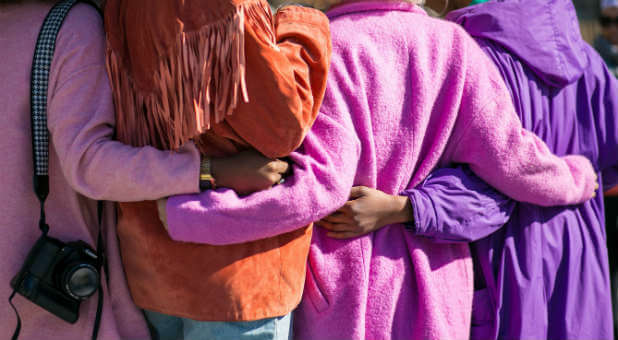Do you know anyone who has lost a loved one? A spouse, a child, a parent?
I’ve watched people around me lose those they love through illness, accident, old age, or even by self-inflicted means. And I’ve felt bad for them. Sympathy. Knowing about their loss and pain, without truly knowing loss and pain of a similar magnitude.
Is sympathy enough?
Sometimes it has to be, because it’s all we have to give. Still, while we say we understand or we know how the other person feels, we may not. Not really. How can we, unless we’ve had a similar experience? Even then, no two people are the same, no two relationships are the same, and no two losses are the same.
But even though every loss is unique, it’s empathy—not sympathy—that enables us to reach into the depth of our own feelings of pain and loss as we come alongside other hurting people.
Never have I been personally aware of this truth as much as I am now. There’s a sisterhood—and brotherhood—who are members of a club no one wants to join. The pain of loss is often near, regardless of how much time has passed. It hovers just below the surface, breaking through at unexpected moments in ways that leave you gasping for air as though a drowning man.
But that pain is what enables one person to come alongside another and say “I understand” in a way no one else can. Empathy. My heart and spirit are touched when another widow shares her similar circumstance. Or maybe she doesn’t say anything at all. Sometimes it’s enough for our eyes to meet in mutual pain, or to share a hug for physical comfort.
The need for empathy also transcends personal relationships or shared loss. It’s needed on a grander scale in our culture and in our world.
We’ve lost our collective ability to empathize. And if we haven’t lost our ability to empathize, then in many cases we’ve lost our desire. In the process, we’ve become adept at dehumanizing our fellow human beings. Political victories take center stage and are pursued regardless of the cost.
What would happen if we acknowledged others as being motivated by their own pain and need for acceptance? How can we come alongside and say, “I understand,” and then offer biblical alternatives for addressing their pain?
To be able to say to the pregnant young woman, “I haven’t experienced a crisis pregnancy, but I know what it is to be frightened as I face the unknown future. May I offer you practical resources and also share with you about the one who holds that future?”
Or to say to the person who chooses to deny God’s existence, “Trusting God was hard for me, too, because I’d been let down too many times to ever want to trust anyone again. May I share how this changed in my life?”
To really listen to those with whom we disagree politically or socially, and empathize with their hopes and dreams, even though we disagree with their goals and values.
Are we guaranteed to make a difference on a grand scale? No. Still, we might make a difference in the life of one person. And perhaps that’s the work God has for us to do at such a time as this.
Sympathy says, “you poor thing.” Empathy says, “I really do feel your pain.
Empathy does not require compromising our values, but it does allow us to truly hear the other person’s heart before we answer. In that moment, the Holy Spirit has an opportunity to equip us to respond with love, grace and humility.
So, the next time you find yourself feeling critical or being drawn into a disagreement, ask God for the ability to reach down into your own pain for the empathy the other person desperately needs.
Have you received another person’s empathy?
How did you feel as a result?
Ava Pennington is a writer, speaker and Bible teacher. She writes for nationally circulated magazines and is published in 32 anthologies, including 25 “Chicken Soup for the Soul” books. She also authored Daily Reflections on the Names of God: A Devotional, endorsed by Kay Arthur. Learn more at avawrites.com.
This article originally appeared at avawrites.com.
















































